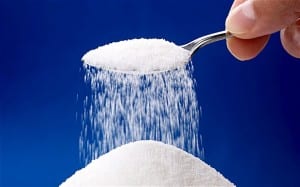 Does dieting work? Studies suggest that a few programmes, such as Weight Watchers, do, as long as you are committed to them. There’s also some research supporting intermittent fasting, but obesity numbers are still on the rise, as are the numbers of faddy solutions to the problem.
Does dieting work? Studies suggest that a few programmes, such as Weight Watchers, do, as long as you are committed to them. There’s also some research supporting intermittent fasting, but obesity numbers are still on the rise, as are the numbers of faddy solutions to the problem.
If the food and drink industry continues to pour fat and sugar in their foods, and we refuse to balance our energy intake with our energy outtake, then should we be ‘fined’ by a tax on the sugar in our food?
The Breatharian diet, where you live on fresh air, and the Alcorexia diet, which recommends substituting alcohol for food, are among this year’s top 10 dangerous diets endorsed by celebrities and highlighted by the British Dietetic Association (BDA) in their latest warning about weird weight loss regimes.
Ideas for fighting the flab are becoming ever more ludicrous, but each of them is a sad reflection of the desperation created by our spiraling obesity epidemic.
More than half of the population is unhealthily fat and will clutch at any solution to a food addiction that is governing their lives.
We have an eating culture where not just two-for-one, but three-for-two meal deals are considered a ‘good thing’ and are led by governments, which many campaigners believe to be enthralled with the industry.
Taking responsibility as consumers for our own actions doesn’t seem to be working, so what is the answer?
No more “muffin tops”
It was recently revealed that some of the big food giants have easy access to government ministers, while public health campaigners say they rarely get a look-in.
Those politicians, who are keen to show their concern, are ever-ready with baffling pronouncements. Last winter, Jo Swinson, the equalities minister, declared that the media should stop using “muffin tops,” “bingo wings” or “thunder thighs” when describing the excess bulk carried by women.
Swinson said that women should “be healthy” rather than subscribe to fad diets; however, what exactly is meant by “healthy” is clearly not understood by most of us. Some food manufacturers are happy to confuse the message by insisting sweetened fruit juice, and even fruit sweets, should be included in the recommended five-a-day fruit and vegetable intake.
In the face of thousands of novel taste experiences – most of them laced with sugar, fat and infused with food flavouring – many people see diets as a waste of time anyway.
Fat or sugar?
As we cast around for new solutions for calorie reduction, the key question remains: Is it fat or sugar that we need to cut down on, and how do we do it?
There is no evidence that excess calories from sugar are any more harmful than excess calories from other food sources. There is also no way of accurately measuring the nation’s real calorie intake, as all we know is that the volume of food bought for home consumption has declined.
In addition, there is a continuing argument about how much of the obesity epidemic can be blamed on diet and how much on a lack of exercising.
Hard to digest
In the meantime, experts in food metabolism are turning their attention to another black hole in our knowledge: We do not know how much energy (in calories) is expended in digesting our food, though we do know that highly processed food is broken down more easily than raw meat, vegetables or other ‘whole’ foods. One scientific project is revisiting the very high calorie values ascribed to nuts, as their contribution to weight gain may be much lower than believed due to the effort required to digest them.
However, it does seem that sugar will still turn out to be the biggest problem, because it is now added unnecessarily to almost all processed foods. Most of us are unwittingly consuming daily bagfuls of the stuff, which provide up to 500 extra empty calories a day. More than other Europeans, Britons have been trained to expect all food to taste sweet. A cursory glance at the labels on ready meals, tinned soup, biscuits and cakes on sale elsewhere in Europe shows that they often have a lower calorie value than in the U.K.
Britons’ increasing alcohol intake is bumping up sugar consumption even more. A glass of wine may contain 150 calories, and a can of lager more than 200. In a desire to show greater public health responsibility, Waitrose, Sainsbury’s and the Co-Op have started putting calorie values on wine, and MillerCoors in America is about to become the first lager producer to follow suit.
There is, however, little reason to be optimistic about how much this initiative will change behaviour. Putting calorie values on Mars candy bars did not have as much of an effect as expected, and was later accompanied by the successful marketing of a double-sized version and many other new super-sized bars.
A taxing question
There is a strong parallel between our current food addiction and the tobacco addiction of earlier generations. Decades of public health messages had little effect on smoking rates. Most authorities agree the biggest factor in reducing cigarette consumption has been the huge tax on tobacco, which accounts for £6-£7 of the average £8 cost of a packet. As a result, the number of smokers has fallen to a record low of less than one in five adults.
An increasing number of senior doctors and public health advisors are arguing for a tax on sugar, aiming to achieve a similar reduction in the number of obese people. This would radically reduce the burden on the health service, and ultimately the taxpayer, of treating the worsening epidemics of diabetes, heart disease and cancer in overweight people, as well as covering the cost of the greater rate of sickness absences in obese workers.
Count the calories
Unless a miracle cure for obesity emerges, it seems inevitable that the argument for a sugar tax will win.
In the meantime, for the average consumer battling weight gain, the old-fashioned notion of calorie counting is still probably the only answer. Earlier this year, the National Health Service (NHS) produced its first 12-week weight loss plan, which goes back to the simple mantra of monitoring what you eat and counting the calories.
Who knows; perhaps counting our drinks in calories, rather than alcohol units, might be a way of sobering us all up.
Photo Credit: The Telegraph


